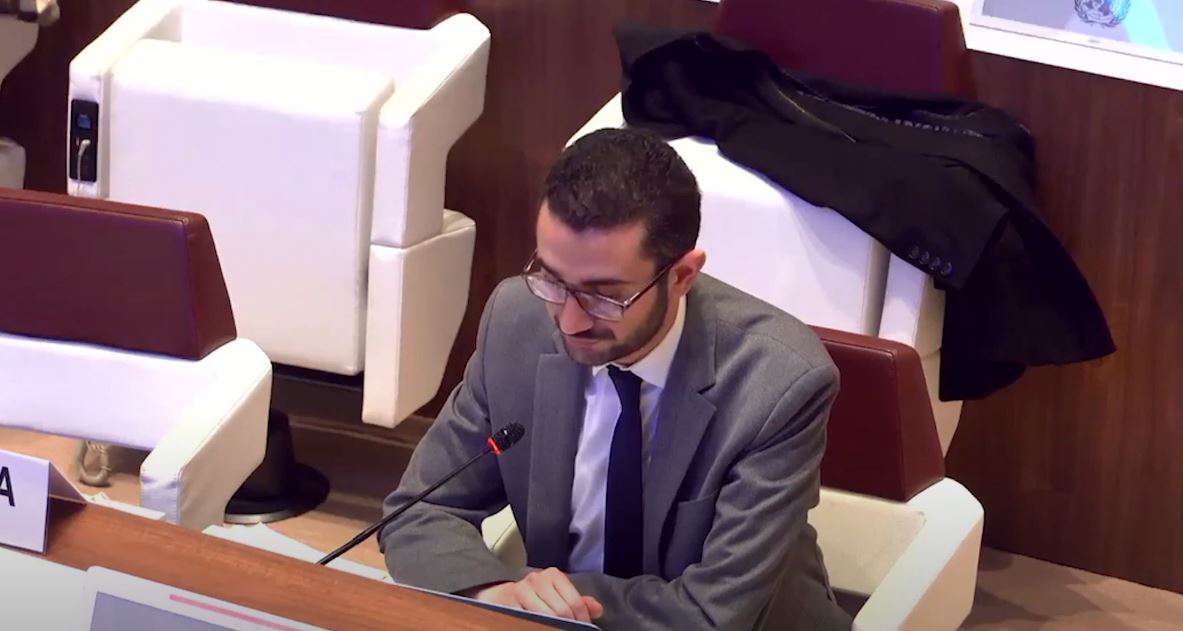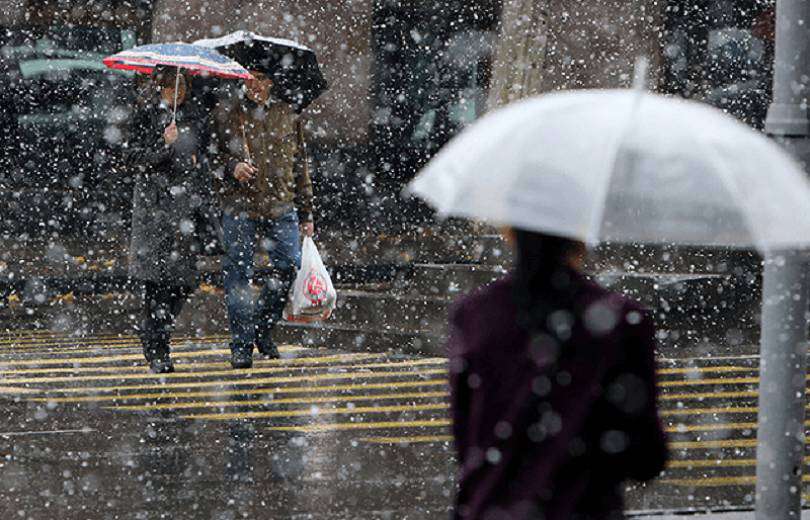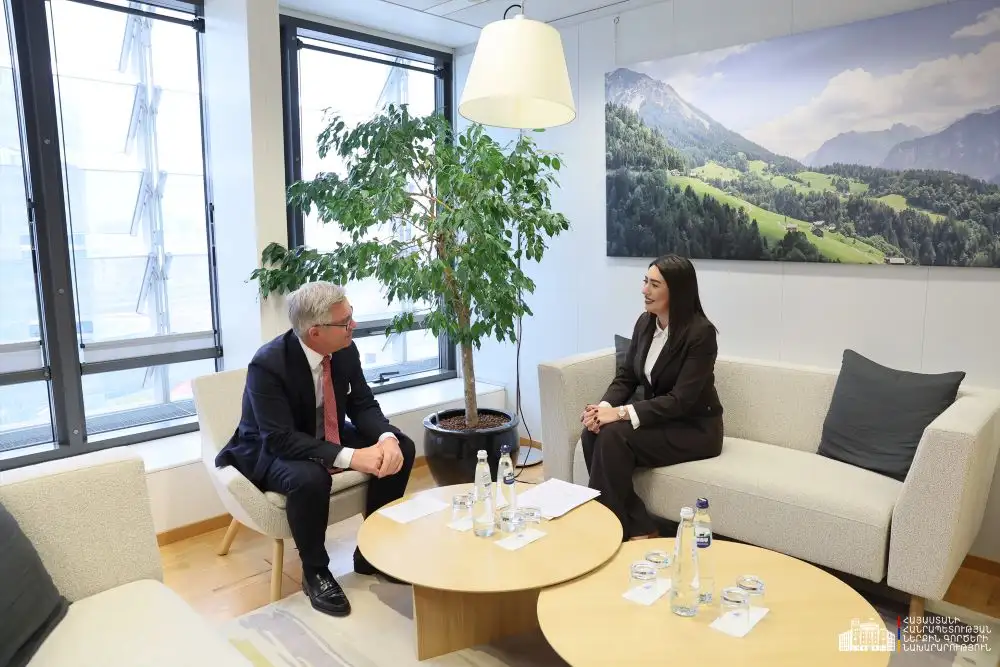The Head of the Migration and Citizenship Service of the Ministry of Internal Affairs, Armen Ghazaryan, participated in the International Migration Review Forum in Geneva.
As part of the forum, the UN Migration Network organized two multilateral consultations in preparation for the regional review. Stakeholders called for the inclusion of civil society and trade unions in all steps of the implementation and review of the GCM and the involvement of migrants and their organizations in all decisions affecting them.
Armen Ghazaryan, head of the Migration and Citizenship Service of the Ministry of Internal Affairs, gave a speech at the second regional review event (GCM) of the Global Declaration on Safe, Regular, and Secure Migration at the meeting of the Economic Commission for the European Region (UNECE), where it was explicitly said:
"Dear ladies and gentlemen, first of all, on behalf of the Republic of Armenia, I would like to welcome you all on the occasion of the second regional review event (GCM) of the Global Declaration on Safe, Regular, and Secure Migration, which is being held within the framework of the Economic Commission for the European Region. This is an excellent opportunity to highlight global and regional challenges, reflect current migration trends better, and monitor the progress of global migration processes based on the 2022 International Migration Review Forum results.
Armenia has continuously tried to achieve the goals of the two global declarations by improving migration management and the protection of displaced persons. We highly appreciate implementing the commitments undertaken in the international declarations (GCM) framework. Armenia strives to properly fulfill the assigned tasks, particularly in policy development, which will help implement the declaration and its reporting.
Dear colleagues, The World Migration Declaration's primary goal is our country's ongoing institutional migration reforms. In 2022, the Migration and Citizenship Service (MSC) was established under the Ministry of Internal Affairs of Armenia. As a result, most migration-related structures and functions have been consolidated, and functional centralization has increased the efficiency of migration management. The goal of the institutional reforms of migration is to have a unified and effective management of migration, taking into account the security of the processes and making a transition to citizen-centric services.
We are essential for the digitization of migration management. The EU-Armenia electronic readmission management system (2019), the work permit system (2022), and the electronic asylum case management system (2022) have already been digitized, and we have initiated the digitization of all services in the field of migration.
The digitization of administrative processes related to citizenship and the issuance of residence permits has already started. Furthermore, developing and implementing a new system of identification cards and biometric passports is underway through public-private partnerships, leaving coordination and quality control functions as a state mandate. The introduction of electronic systems addresses various goals of the World Migration Declaration, in particular:
Facilitating access to relevant documentation.
Establishing regular migration channels in the context of international migration.
Providing additional tools to prevent human trafficking.
The government has prioritized the areas of readmission and reintegration of returnees (GCM goal 21). Armenia continues to provide significant improvement in the context of the implementation of bilateral and multilateral readmission agreements. Furthermore, effective coordination of reintegration issues and close cooperation with various stakeholders, particularly non-governmental organizations, have been maintained. In 2023, a return and reintegration center was established to more smoothly organize the integration of repatriates and their involvement in socio-political, cultural, and economic life (GCM goal 19).
At the same time, we faced another wave of displacement as a result of the use of military force by Azerbaijan against Nagorno-Karabakh. More than 100,000 refugees were forcibly displaced from Nagorno-Karabakh. The government of Armenia granted temporary protection to forcibly displaced people from Nagorno-Karabakh. The government's priority is the creation of effective support mechanisms among the affected population. Our efforts in this area align with the declarations from the point of view of ensuring the self-sufficiency of refugees and their social inclusion in host societies.
In this sense, the involvement and support of the international community are vital, and we actively cooperate with our global partners, the International Organization for Migration and the United Nations Refugee Agency, to ensure access to life support processes and other services for refugees and displaced persons.
Madam President, in summary, I emphasize that the 23 goals of the GCM are important landmarks for the Republic of Armenia in developing a migration policy. I want to thank all parties for participating in creating this critical document," the MIA noted at the end of the speech—head of the Migration and Citizenship Service.




















